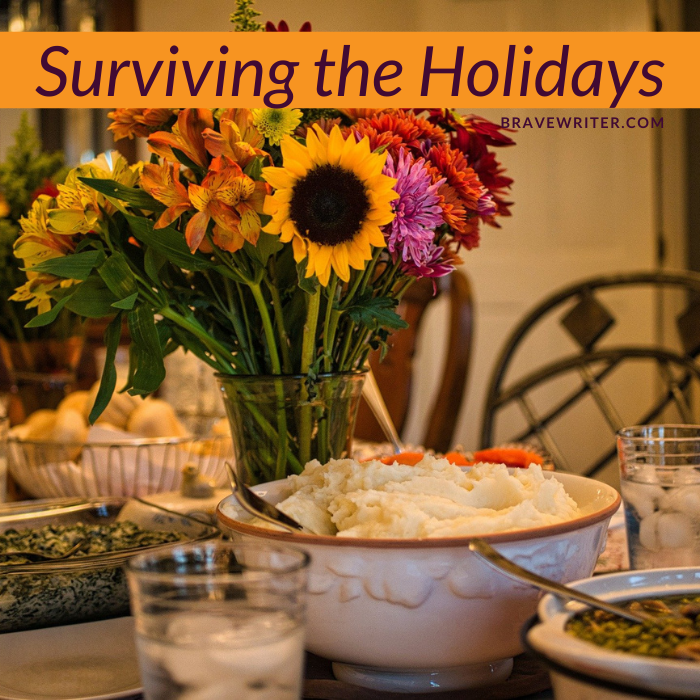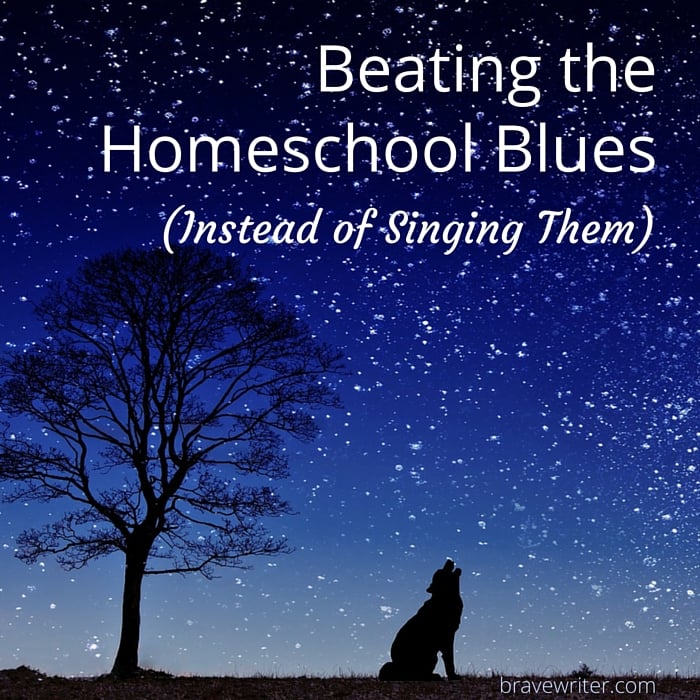
The holiday season is uniquely challenging to homeschoolers.
All fall, you’ve blissfully gone along planning your days, teaching your children, enjoying the closeness of family learning unaware that anyone outside your four walls would suspect you of inflicting harm or undermining your children’s social skills or academic prowess.
Enter the holidays.
The “non-homeschooling” contingent will assemble and take over for the “state” on your behalf. While passing the glazed carrots to little Theo, Aunt Tilda will quiz: “What’s 2 times 6, darling?” Not to be outdone, your mother-in-law will probe 6th grader Emily: “Do you get out much, sweetheart? Have you any friends?” Your father will subtly remind you that you don’t have a degree in education and with the economy the way it is, wouldn’t it be wiser to get a part time job in your specific field to help support your husband rather than wasting your time all day in the house? Finally, your brother wonders how you can stand to be with your kids all day, every day.
If you come from a family that supports your homeschooling experience, rejoice and make them extra pumpkin pies! They are the wonderful few (I come from such a family and am deeply grateful).
Even if your family is supportive, though, you may find yourself at a holiday party where other adults pretend curiosity about your choice to homeschool while conveying thinly veiled skepticism about your qualifications.
I have a few tips for sticking up for this renegade homeschooling lifestyle you radical parents have chosen on behalf of your kids.
1. Don’t justify your choice by touting your credentials or qualifications.
Even if you have a teaching background, leave it out of the equation. The homeschooling movement benefits from a bold declaration that parents are adequate to teach children to read, write, and calculate times tables. Let skeptics know that you are as much educational coordinator as instructor, as your kids get older.
2. Focus on the enjoyment you get from being with your kids.
More important than discussing the failures of the school system is emphasizing how much you love being with your kids. No one can take that away from you. Most parents are startled to realize that being with your own children is a pleasure, not a dreaded task.
3. Talk about ‘family learning’ instead of school or education.
Many parents imagine assignments, grades, and lectures when they think of homeschool. They can’t picture imposing all that discipline and structure, while retaining a happy family atmosphere. Homeschool is different than institutional learning because the family is learning together. Discuss how everyone gets involved at their own level when working on a history topic or science experiment, when freewriting or listening to a novel read aloud. Tell them about tea time and poetry. Resist the temptation to explain how what you do matches what a school requires.
4. Validate their authority in selecting the educational choices they’ve made.
This is perhaps the most important thing you can do—talk about educational choice. All of us make choices in how we educate our children. Let them know that you support their enthusiasm for the school system and that you can see how that’s working out for their kids (find whatever good is occurring in their lives and support it). Then share the unique joys of homeschool.
5. Resist defending your kids’ social lives.
That one rarely goes anywhere good. We’ve all been programmed since toddlerhood to believe that socialization matters and that it happens at school. Trying to get adults to understand differently is an exercise in clacking your noggin against a cutting board! Just let them know your children do have social lives and that you aren’t worried one bit about your kids’ futures as successful people in the world.
6. Take responsibility for the outcome of homeschool.
I always like to remind inquiring people that I know I took a risk by keeping my kids home. I tell them that I didn’t know how it would all turn out, but I was willing to take a chance and make corrections as I went. I even say that my kids may make different decisions for their own children when they are older. I avoid committing to superior learning, better college admittance scores, brilliance in my offspring, or anything that puts pressure on my kids to be poster-children for homeschooling. They don’t need it or deserve the scrutiny. I take all the skepticism on to me, and I let the failure they may associate with my homeschool choice fall on my head. Protect your kids. Don’t tout their astounding brains because someone will immediately conjure a pop quiz.
7. Don’t talk to rude people.
Turn away insulting comments with a polite, “I’d rather not talk about homeschool on my holiday vacation. This is my time off.” Curmudgeons don’t deserve the full “why I homeschool” defense. Use the remote control or dessert to distract the persistent. As we like to say…

Give them pie.
The bottom line is this: You homeschool because it feels like the best educational choice for your family. That’s a good enough reason for everyone. And you can stop right there, if you need to.




















